
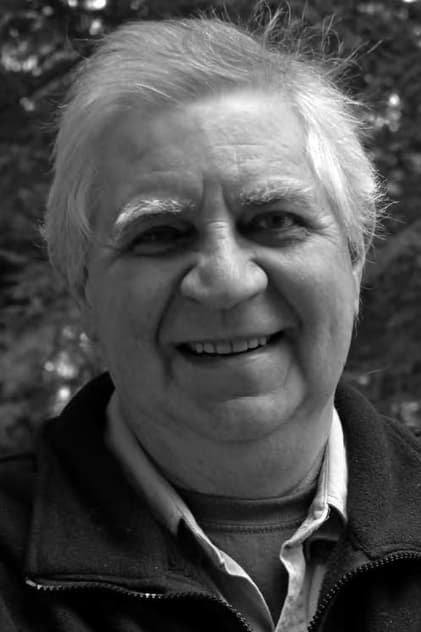
Jean Pierre Lefebvre
Born: August 17, 1941
in Montréal, Québec, Canada
in Montréal, Québec, Canada
Jean Pierre Lefebvre (born 17 August 1941) is a Canadian filmmaker. He is widely admired as "the godfather of independent Canadian cinema," particularly among young, independent filmmakers.
Jean Pierre Lefebvre studied literature at the University of Montréal and taught for two years at the Jesuit-run Loyola College in Montreal (now part of Concordia University). He began writing as a film critic, first for Quartier Latin, then for Séquences and Objectif. He directed his first film, a short drama, then three independent features. He joined the National Film Board of Canada and made two films, including the 1968 feature My Friend Pierrette (Mon amie Pierrette), co-starring Raôul Duguay and produced by Clément Perron. Lefebvre was then asked to head the NFB's French-language fiction studio. He began its Premières Oeuvres series, designed to make low-budget shorts and features. Four features and a number of shorts were produced within a year before the initiative was terminated, and Lefebvre left to form his own production company, Cinak, with his wife and editor, Marguerite Duparc. He writes and produces all his own films.
Lefebvre was one of the first Canadian filmmakers to receive international acclaim for his work; his film Don't Let It Kill You (Il ne faut pas mourir pour ça) (1967) was the first Canadian film to be invited to the Cannes Film Festival. He proved to be successful again at Cannes when he received the International Critics' Prize for Les fleurs sauvages (1982) and his film Le jour S... (1984) was screened in the Un Certain Regard section. His 1973 film The Last Betrothal (Les dernières fiançailles) won the prestigious Prix de l'Organisation catholique internationale du cinéma in 1974.
Il ne faut pas mourir pour ça (1967), Le Vieux pays où Rimbaud est mort (1977), and Aujourd'hui ou jamais (1997) make up his Abel Trilogy; three feature films starring the recurring character of Abel Gagné played by Marcel Sabourin.
In 1991, he was made an Officer of the Order of Canada "for his innovative and high-quality feature films". In 1995 he was awarded the Prix Albert-Tessier. In 2013, Lefebvre received a Governor General's Performing Arts Award.
Source: Article "Jean Pierre Lefebvre" from Wikipedia in English, licensed under CC-BY-SA 3.0.
Jean Pierre Lefebvre studied literature at the University of Montréal and taught for two years at the Jesuit-run Loyola College in Montreal (now part of Concordia University). He began writing as a film critic, first for Quartier Latin, then for Séquences and Objectif. He directed his first film, a short drama, then three independent features. He joined the National Film Board of Canada and made two films, including the 1968 feature My Friend Pierrette (Mon amie Pierrette), co-starring Raôul Duguay and produced by Clément Perron. Lefebvre was then asked to head the NFB's French-language fiction studio. He began its Premières Oeuvres series, designed to make low-budget shorts and features. Four features and a number of shorts were produced within a year before the initiative was terminated, and Lefebvre left to form his own production company, Cinak, with his wife and editor, Marguerite Duparc. He writes and produces all his own films.
Lefebvre was one of the first Canadian filmmakers to receive international acclaim for his work; his film Don't Let It Kill You (Il ne faut pas mourir pour ça) (1967) was the first Canadian film to be invited to the Cannes Film Festival. He proved to be successful again at Cannes when he received the International Critics' Prize for Les fleurs sauvages (1982) and his film Le jour S... (1984) was screened in the Un Certain Regard section. His 1973 film The Last Betrothal (Les dernières fiançailles) won the prestigious Prix de l'Organisation catholique internationale du cinéma in 1974.
Il ne faut pas mourir pour ça (1967), Le Vieux pays où Rimbaud est mort (1977), and Aujourd'hui ou jamais (1997) make up his Abel Trilogy; three feature films starring the recurring character of Abel Gagné played by Marcel Sabourin.
In 1991, he was made an Officer of the Order of Canada "for his innovative and high-quality feature films". In 1995 he was awarded the Prix Albert-Tessier. In 2013, Lefebvre received a Governor General's Performing Arts Award.
Source: Article "Jean Pierre Lefebvre" from Wikipedia in English, licensed under CC-BY-SA 3.0.
Movies for Jean Pierre Lefebvre...
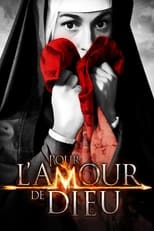
Title: Pour l'amour de Dieu
Character: L'évêque
Released: September 2, 2011
Type: Movie
Montréal, 1959. In the classroom of Sister Cecilia, Leonie (aged 11) first met Father Malachy, a young Dominican father who has come to visit his school. It is love at first sight for this lonely and dreamy child who took refuge in religion to escape a mother who is emotional and too worried. But there is also love at first sight between Sister Cecilia and Father Malachy. Between human love and the love of God, which will prevail? Written by

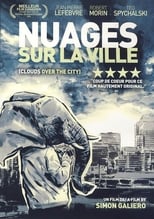
Title: Clouds over the City
Character: Jean-Paul
Released: October 8, 2009
Type: Movie
Jean-Paul is a public servant, tired of toiling at his soul-destroying job. As a writer, he feels out of touch with the times and longs for inspiration.


Title: Larry Kent: The Man Who Shot Horses with Green Tails
Released: November 9, 2006
Type: Movie
Detailing the life and cinematic oeuvre of Canadian filmmaker Larry Kent, featuring interviews with Susan Sarandon and Dave Foley.

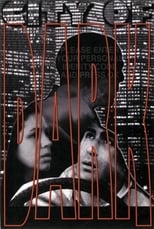
Title: City of Dark
Released: September 17, 1997
Type: Movie
A computer scientist scans dreams with a computer.


Title: To the Rhythm of my Heart
Character: Narrator
Released: September 11, 1983
Type: Movie
Made during Lefebvre's national tour of Canada for a 1981 retrospective of his films compiled by the Canadian Film Institute, the film is a video diary documenting both his philosophical and creative discussions on the co-operative movement in cinema as part of the tour and the concurrent illness and death of his wife, film editor and producer Marguerite Duparc. (Wikipedia)

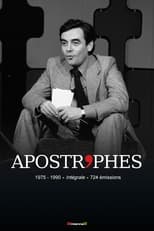
Title: Apostrophes
Character: Self
Released: January 10, 1975
Type: TV
Apostrophes was a live, weekly, literary, prime-time, talk show on French television created and hosted by Bernard Pivot. It ran for fifteen years (724 episodes) from January 10, 1975, to June 22, 1990, and was one of the most watched shows on French television (around 6 million regular viewers). It was broadcast on Friday nights on the channel France 2 (which was called "Antenne 2" from 1975 to 1992). The hourlong show was devoted to books, authors and literature. The format varied between one-on-one interviews with a single author and open discussions between four or five authors.

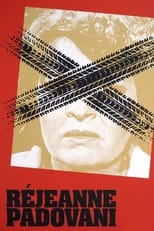
Title: Réjeanne Padovani
Character: Jean-Pierre Caron
Released: January 1, 1973
Type: Movie
The unexpected return of his ex-wife and the assembly of a group of protesters both threaten to wreck a corrupt contractor's inauguration party for his new superhighway.

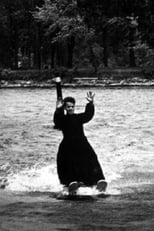
Title: Patricia et Jean-Baptiste
Released: September 17, 1968
Type: Movie
A carpenter is asked by his boss to serve as a guide for the new secretary, a young woman just arrived in Montreal from France. Both of their lives change as he shows her around the city.
